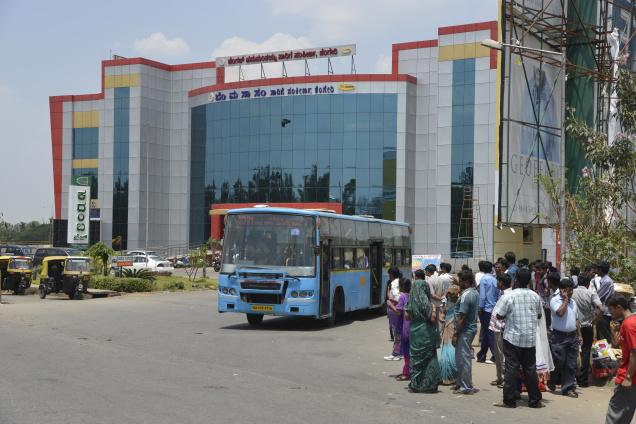The funds provided to the State under the Jawaharlal Nehru National Urban Renewal Mission (JNNURM) have come as a bonanza for Bangalore enabling infrastructure development in a big way over the last eight years. With the State government recently constituting a Vision Group for Bangalore, experts feel it is time to look back at the success and failures of the Central scheme.
Officials at the Karnataka State Urban Infrastructure Development and Finance Corporation (KSUIDFC), the nodal agency for the project in the State, claim the State has been leading in bagging projects under the scheme and is rated among the best in implementation. They cite the allocation of Rs. 579.62 crore made under the scheme for the transport sector last month as a testimony to the State’s performance. A senior official said Karnataka was the only State to receive such a big grant.
However, a closer examination of the JNNURM projects reveals problem areas. Of the 39 projects granted under the Urban Infrastructure and Governance mission (UIG) for Bangalore over eight years, only 25 have been completed. On the other hand, of the 14 projects sanctioned under Basic Services to the Urban Poor (BSUP) in Bangalore, only two have been completed.
The deadline for completion of projects has been extended by a year to March 2015 recently.
Some experts question the very structure of the mission. “The mission had four objectives — urban planning, citizen participation, co-ordination between various agencies and strengthening of city governance. The release of funds was linked to compliance to the objectives of the mission, but only on paper. The mission has deteriorated to funding flyovers and buses in select cities,” said Ashwin Mahesh, one of the founder members of Bangalore Political Action Committee (B.PAC).
Mr. Mahesh described the JNNURM as a “preferential system” where only 65 cities have been selected. He argued that the mission must be done away with and the Union and State should allocate a part of tax revenue to urban local bodies as unconditional grant.
Urban expert V. Ravichandar said the only positive he saw from the scheme was that public transport got a fillip with good investment in the BMTC. While supporting the continuance of the mission, he said it was centralised with “scant respect for local needs and creativity.” He said a nation-wide review and audit of all the projects under the mission was called for and reform-compliance-linked grant system strictly followed.


